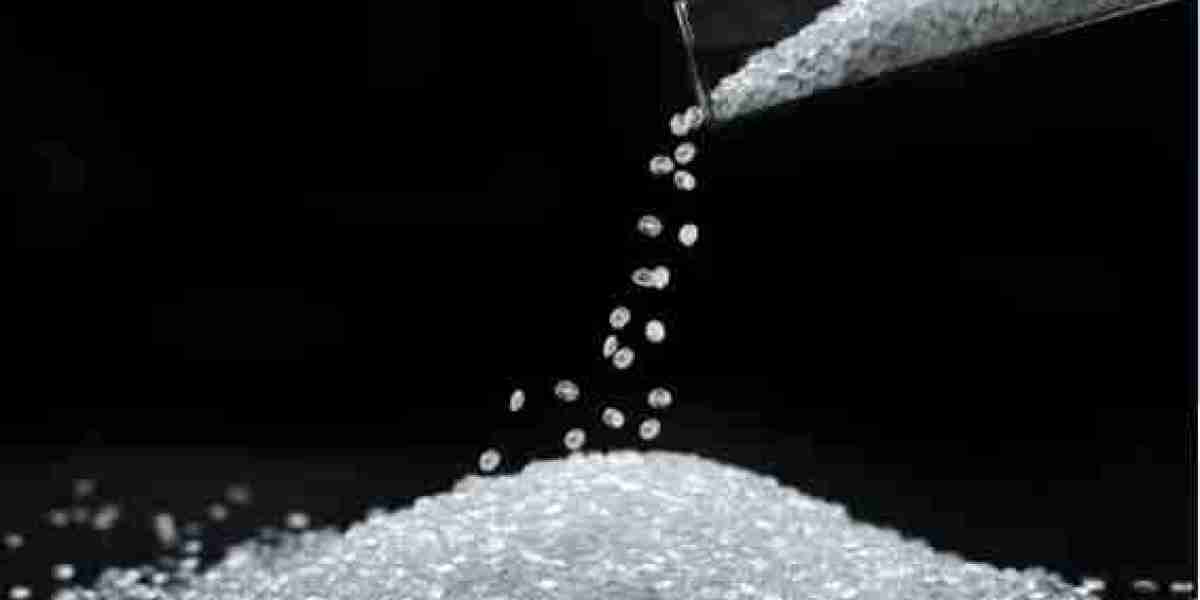As the world shifts toward sustainable manufacturing, RPET (Recycled Polyethylene Terephthalate) flakes have become a core material across various industries. Derived from post-consumer PET bottles, these recycled flakes are processed into a usable raw material that helps reduce the environmental impact of plastic production. Companies are increasingly turning to RPET flakes for packaging, textiles, and consumer goods—and for good reason. Here are five significant benefits of using RPET flakes in production.
1. Environmental Sustainability
The most obvious and important benefit of RPET flakes is their positive environmental impact. Conventional plastic manufacturing relies on virgin petroleum, a finite and polluting resource. In contrast, RPET uses existing plastic waste, keeping it out of landfills and oceans.
Producing RPET flakes generates fewer greenhouse gas emissions compared to virgin PET. According to studies, RPET production can cut carbon emissions by up to 79%. It also consumes less energy, with a significantly smaller water footprint. This reduction in resource use and emissions makes RPET one of the most eco-friendly materials currently available for mass production.
By using RPET, manufacturers contribute directly to a circular economy where materials are reused rather than discarded. This helps combat plastic pollution, a crisis that's become impossible to ignore.
2. Cost Efficiency in the Long Run
While the upfront cost of processing recycled plastics can be slightly higher in some regions, the long-term savings are substantial. As oil prices fluctuate and environmental regulations tighten, the cost of using virgin plastic continues to rise. RPET offers a way to stabilize production costs and future-proof your supply chain.
Because RPET can be reused multiple times without significant degradation in quality, it's an efficient and durable material. With economies of scale kicking in, especially in regions where there are established recycling infrastructures, RPET becomes even more cost-effective over time.
Furthermore, brands that use RPET often qualify for government incentives, subsidies, or tax breaks related to sustainable practices. These financial benefits can offset initial investment and increase ROI.
3. Strong Market Demand and Brand Value
Consumers today care about sustainability, and they’re making buying decisions accordingly. Products that include recycled content are not only more attractive to eco-conscious customers but also align with corporate responsibility standards. This shift in consumer behavior has led many top brands—especially in the apparel, beverage, and packaging industries—to adopt RPET as a key material.
Using RPET flakes allows companies to market their products as environmentally friendly, which can boost brand image and consumer loyalty. A visible sustainability commitment helps companies stand out in competitive markets.
Major retailers are now requiring sustainability disclosures from suppliers. Brands that already incorporate RPET are ahead of the curve and better positioned for these evolving standards. For any RPET flakes manufacturer, offering sustainable material solutions isn’t just good ethics—it’s smart business.
4. Versatility Across Industries
RPET flakes are remarkably adaptable. Once cleaned and processed, they can be turned into fibers, sheets, films, and pellets. These forms are used in everything from water bottles and food containers to carpets, textiles, and automotive parts.
In the fashion industry, RPET is spun into polyester yarns used in clothing, footwear, and bags. In construction, it’s used for insulation and paneling. The packaging industry uses RPET for trays, bottles, and blister packs that are lightweight and durable.
This wide range of applications makes RPET a versatile and valuable resource. As technology improves, the quality of RPET products is reaching—and sometimes exceeding—the quality of virgin plastics. This expands its utility even further.
Some rpet manufacturers in India have developed specialized recycling systems that cater to both food-grade and non-food-grade products, allowing manufacturers to choose the exact type of RPET flake they need for their product category.
5. Regulatory Compliance and Risk Mitigation
Sustainability regulations are becoming stricter around the world. Many countries and regions are imposing bans or taxes on single-use plastics, while encouraging the use of recycled materials. By integrating RPET into production processes now, companies can avoid future penalties and adapt more easily to regulatory shifts.
In the European Union, for example, legislation requires that plastic bottles contain at least 25% recycled content by 2025 and 30% by 2030. Similar laws are being proposed or passed in parts of the U.S., India, and other markets.
Using RPET gives manufacturers a proactive edge. It shows regulators, investors, and customers that your company is not just complying with current rules—but is prepared for what’s next.
It also mitigates reputational risk. Brands caught using excessive virgin plastic face backlash and even boycotts. RPET use acts as a safeguard, helping brands maintain a positive public image while staying legally compliant.
Final Thoughts
Switching to RPET flakes isn’t just a green gesture—it’s a strategic decision that touches every aspect of modern manufacturing. From cost and compliance to branding and supply chain stability, RPET offers clear, measurable benefits.
As demand grows, supply chains will mature, and the global network of RPET flakes manufacturers will only become more sophisticated. For businesses looking to stay ahead of the curve, now is the time to invest in sustainable materials.
Whether you’re in textiles, packaging, or industrial goods, RPET is no longer a niche material—it’s a necessity for any company that wants to stay relevant and responsible in the 21st century.







